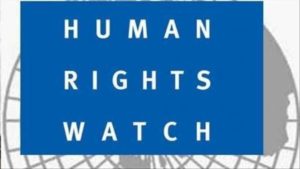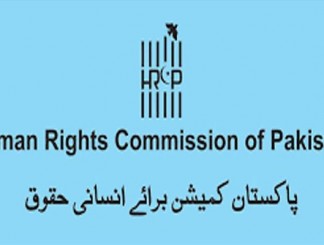Pakistan Embassy rejects Human Rights Watch (HRW) claim about Pakistan Media Development Authority (PMDA)
WASHINGTON: A spokesperson of the Pakistani Embassy has brushed aside a report by Human Rights Watch (HRW), a New York-based watchdog body, about Pakistani government plans to set up the Pakistan Media Development Authority (PMDA) though an ordnance, saying the claim was “factually incorrect.”
“There is no plan to introduce the regulatory body through an ordinance,”Spokesperson Maliha Shahid said in a letter to HRW’s Associated Asia Editor, Patricia Grossman, who has claimed that through such a body the government is seeking broad new powers to control the media.
The spokesperson regretted that Ms Grossman did not even bother to check the factual position from the concerned authorities. “Presently, over a half dozen outdated laws and set of rules are being implemented through multiple bodies to regulate media which do not match with the modern-day requirements of ‘converged media’,” Shahid said, adding that there was need to introduce holistic policy responses to the challenges of fake news, disinformation, hate speech, abusive content, privacy issues, copyright violations in the emerging information communication technologies.
“Hence, as per global best practices an independent regulatory body — Pakistan Media Development Authority — is under consideration for addressing challenges and requirements for convergent media environment of the 21st century to make Pakistan as a major global center for multimedia information and content services,” the embassy spokesperson said.
The PMDA, she said, would ensure freedom, empowerment and development of media in Pakistan. “No criminal liability is being considered under the proposed media regulatory framework,” Shahid emphasised, pointing out that the government has been discussing the proposed regulatory framework with all stakeholders for many months.
In this regard, she said, a series of consultative meetings have been held with media owners, editors, working journalists, anchorpersons, press clubs, civil society etc. Further, according to the spokesperson, Minister for Information and Broadcasting Chaudhry Fawad Hussain has given a detailed presentation to a joint meeting of Senate and National Assembly standing committees on information and broadcasting as well as to the federal cabinet, “which negates the story that the proposed bill is being kept secret”.
Responding to Pakistan Embassy’s rebuttal, HRW’s Associated Asia Editor, Patricia Grossman asked the embassy to provide them draft of the Pakistan Media Development Authority bill.
In a tweet, she said: “Wow. You have identified no inaccuracies in our article and you have failed to provide a draft of the law. What are you hiding? Here is our dispatch.” In her dispatch the HRW office-bearer said: “The Pakistani government is seeking broad new powers to control the media as part of its crackdown on freedom of expression. Journalists, human rights activists, and political leaders across that country have raised the alarm about proposed legislation that would bolster powers of the government to censor and restrict the media.
“The government claims an ordinance setting up the Pakistan Media Development Authority (PMDA) would replace the ‘fractured’ regulatory environment and ‘fragmented’ media regulations currently in place. The proposed PMDA would bring all media in Pakistan – print, television, radio, films, and digital media – under one regulator.
“Pakistan’s current broadcast media regulator, the Pakistan Electronic Media Regulatory Authority (PEMRA), has long been the enforcer of the government’s intensifying campaign of repression of the media. It has ordered television channels to shut down for airing criticism of the government, terminated live interviews of opposition leaders, and blocked cable operators from broadcasting networks that aired critical programs.
“Journalists, human rights activists, and lawyers said the PMDA law would grant new unchecked powers to the government-controlled regulator by setting up special ‘media tribunals’ that will have the power to impose steep fines for media organizations and journalists who violate its code of conduct or publish content it deems to be ‘fake news.’ The proposed law would also increase government control by allowing government officials to be appointed to key positions. “The government has kept the final draft of the PMDA law and the entire drafting process secret, raising further apprehensions among the media and civil society groups. The government has undertaken no meaningful consultative process on the law.
“The media regulatory framework in Pakistan does need to be amended – not to centralize more powers in government censors, but to create independent media regulators dedicated to protecting free expression. With journalists under relentless attack for doing their jobs, the Pakistan government needs to stop trying to control reporters and instead start protecting media freedom,” she concluded.
Source: The News


